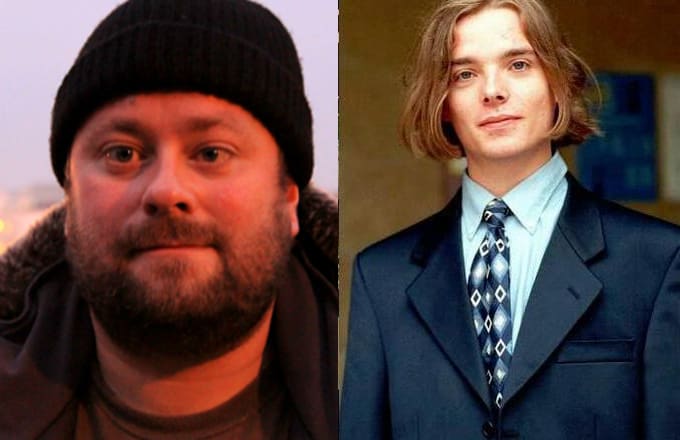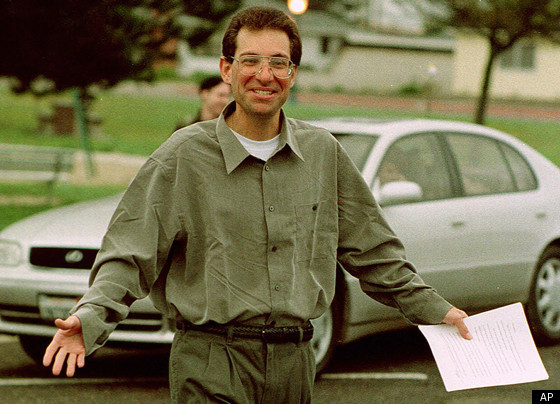There are pioneers in every profession, and computer hacking is no exception. In fact, because literally, anybody with the right tech setup can launch their hacking career, the stories of famous hackers are often less glamorous than most people might expect. Because they were operating in a profession with very few rules, each of them was forced to adapt on the fly; some succeeded while many others failed. Here are the stories of six of the most famous hackers and how they were caught.
1. Adrian Lamo

In 2001, a 20-year-old hacker named Adrian Lamo took advantage of an unguarded content management tool at Yahoo to modify a Reuters article. He also managed to add a fake quote attributed to former U.S. Attorney General John Ashcroft, who is someone you typically don’t want to be caught associating with phony information.
But Lamo’s motives were generally far more benign than many other hackers. In many instances, he would hack systems and then almost immediately notify not only his victims but also the press. Lamo’s efforts took on a “Robin Hood-like” quality, especially when he used his hacking as a teachable moment to help improve his victims’ security. In 2002, Lamo took a step away from benign and closer to malignant by hacking The New York Times’ intranet, where the black hat hacker included his own name on a list of expert hacking sources and began researching high-profile public figures.
Known as “the Homeless Hacker” due to his lack of a permanent address, Lamo became known for his propensity to roam the streets with few if any possessions. In 2010, Lamo discovered he suffered from Asperger’s Syndrome. This mild form of autism, marked by difficulty with social interactions and odd, highly intense behavior, sheds light on his entry into the hacking community.
Lamo’s ultimate moment of truth came when he turned Chelsea Manning, who would be later known as a key figure in Wikileaks, over to FBI. Manning was ultimately arrested for leaking sensitive US government documents, and Lamo effectively disappeared, creating no small amount of speculation as to his ultimate whereabouts until his sudden death at age thirty-seven in March 2018. The cause of Lamo’s death has not been made public.
2. Mathew Bevan and Richard Pryce

If the films of the 1980’s taught us anything, it is that nobody likes a hacker who nearly starts World War III, which is precisely what British hackers Mathew Bevan and Richard Pryce almost did in 1996. The pair of famous hackers manipulated their way into multiple military networks including Griffiss Air Force Base, the Defense Information System Agency and the Korean Atomic Research Institute (KARI).
By dumping KARI research into American military networks, the duo of black hat hackers very nearly sparked an international incident. Luckily for everyone involved, the KARI data was from South Korea; had it been from North Korea, cooler heads may not have prevailed. The incident did expose critical flaws in American military computer systems, but the lesson in catching hackers came with an unwanted amount of sweat and adrenaline.
3. Kevin Poulsen
Not every black hat hacker is aiming to start World War III; some, like Kevin Poulsen, just wanted to wet their beak a little. In 1983, at the precocious age of 17-years-old, Poulsen managed to hack into ARPANET, which was a network being run by a little outfit called the United States Pentagon. Being notoriously known for having soft hearts, the good folks at the Pentagon let Poulsen go with a warning as long as he promised never to do it again.
Five years later, to everyone’s shock and amazement, Poulsen did it again, this time hacking the United States government to obtain files concerning deposed Philippines President Ferdinand Marcos. Discovered and wanted by federal authorities at age twenty-three, Poulsen decided to go on the lam. Although he stayed out of sight, he did not remain silent.
During his time fleeing the government, Poulsen, operating under the name Dark Dante, went on to hack secret government files, mainly just to prove that he could. He also rigged a radio station contest in 1990. By hacking the radio station’s computers, Poulsen ensured he would be the 102nd caller, picking up a brand new Porsche, a vacation, and $20,000 in the process.
In addition to all of the fabulous prizes, he also won the attention of the federal authorities he had been eluding for over two years. Poulsen was soon arrested, convicted on seven counts of mail, wire and computer fraud, and money laundering. After serving his sentence, which included being forbidden from using a computer for three years, Poulsen decided to turn his life around. Using his impressive knowledge about cybersecurity, Kevin Poulsen became a writer, specializing in computer security at Wired, where he serves as the senior editor.
4. Kevin Mitnick

Remember the earlier reference to 1980’s movies about hacking shaped our perceptions? Meet Kevin Mitnick, whose adventures in hacking served as the basis for the seminal 1983 film “War Games.”
As a teenager, Mitnick was charged with stealing computer manuals from Pacific Bell in 1981. The next year he upped his game considerably, hacking a little outfit known as the North American Defense Command (NORAD), which was the basis for “War Games.” Because bringing the world to the brink of global thermonuclear war wasn’t enough, Mitnick hacked Digital Equipment Corporation’s network in 1989.
Hacking top-secret missile defense systems was one thing, but hacking a major for-profit company like DEC landed Mitnick in some seriously hot water. Considered the most-wanted cybercriminal in the United States at the time of his arrest, Mitnick He was later arrested, convicted and sent to prison for hacking Nokia, Motorola, and the Pentagon. After pleading guilty to seven counts of fraud, including wire fraud and computer fraud, Mitnick spent five years in prison, eight months of which were spent in solitary confinement.
Although Mitnick supposedly changed his ways and went white hat, it appears old habits die hard for hackers that got caught. In 2014, he launched “Mitnick’s Absolute Zero Day Exploit Exchange,” a site selling unpatched, critical software exploits for large sums of money.
5. Albert Gonzalez

Most people may have never heard of Albert Gonzalez, but his accomplishments would make both Jesse and Frank James blush. Despite being only twenty-two years old at the time, Gonzalez was the mastermind behind the biggest credit card theft in recorded history. By using a sniffer to seize computer data from internal corporate networks around the world, Albert Gonzalez managed to resell approximately 170 million credit cards and ATM numbers. When arrested, the black hat hacker was sentenced to 20 years in federal prison.
Gonzalez, who went by the online moniker of “soupnazi,” learned to ply his trade as a high school student in Miami, eventually finding a home on a criminal commerce site called Shadowcrew.com. Upon his arrest, Gonzalez “flipped” and began working with the government to implicate dozens of his former associates from Shadowcrew. As an informant, Gonzalez orchestrated the theft of nearly 200 million accounts from major corporations.
In 2005, Gonzalez stamped his ticket into the Hackers’ Hall of Fame by staging the first serial data breach of credit information in history. By creating backdoors using innovations in SQL, he and his crew stole approximately $256 million from US retailer TJX alone. During his 2015 sentencing, federal prosecutors declared Gonzalez’s victimization of other human beings to be “unparalleled.”
Conclusion
Although many other cybercriminals could have easily made this list, to say nothing of the untold number of hackers who have never been caught, there is no denying that some of the most prolific hackers accomplished some amazing things with little to no resources or equipment. Although cybersecurity continues to improve by leaps and bounds, history demonstrates that no matter how good of a mousetrap we build, some people will stop at nothing until they’ve found a way to beat it.












